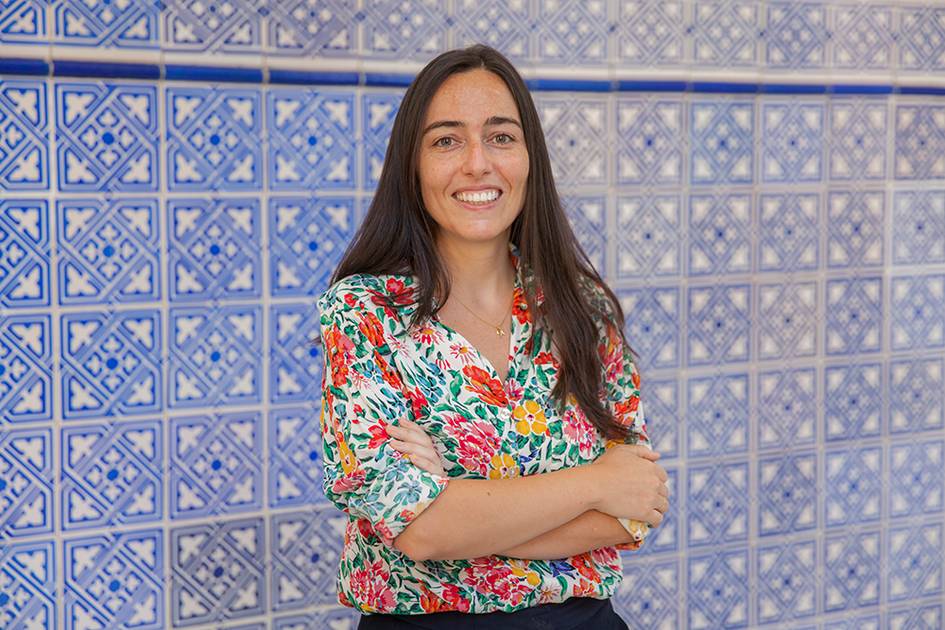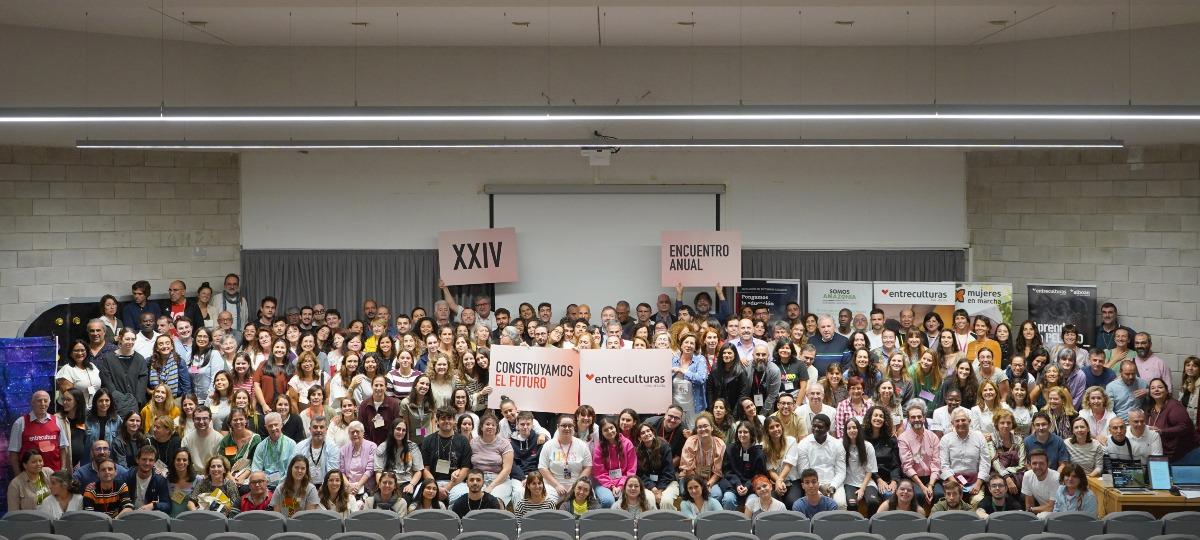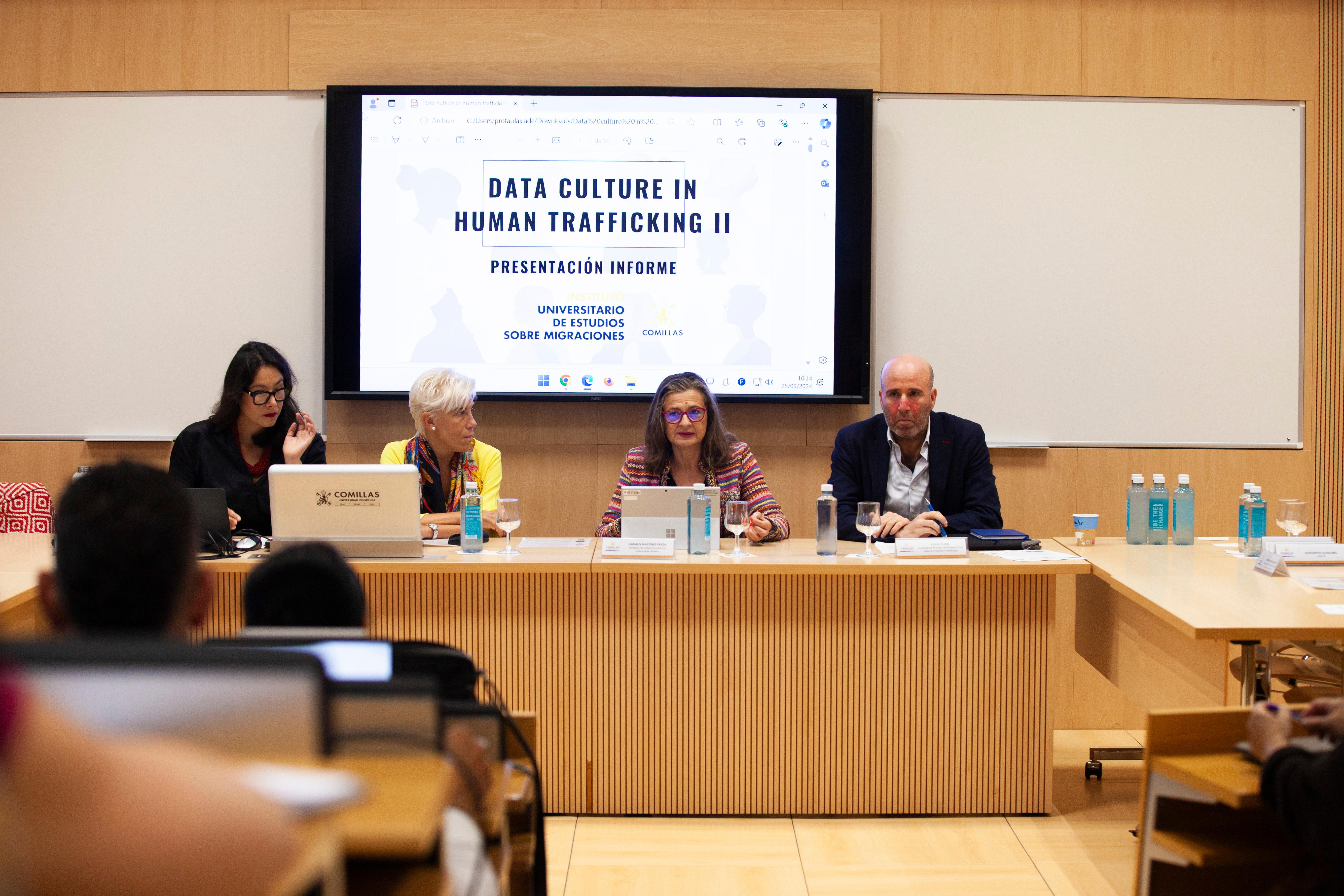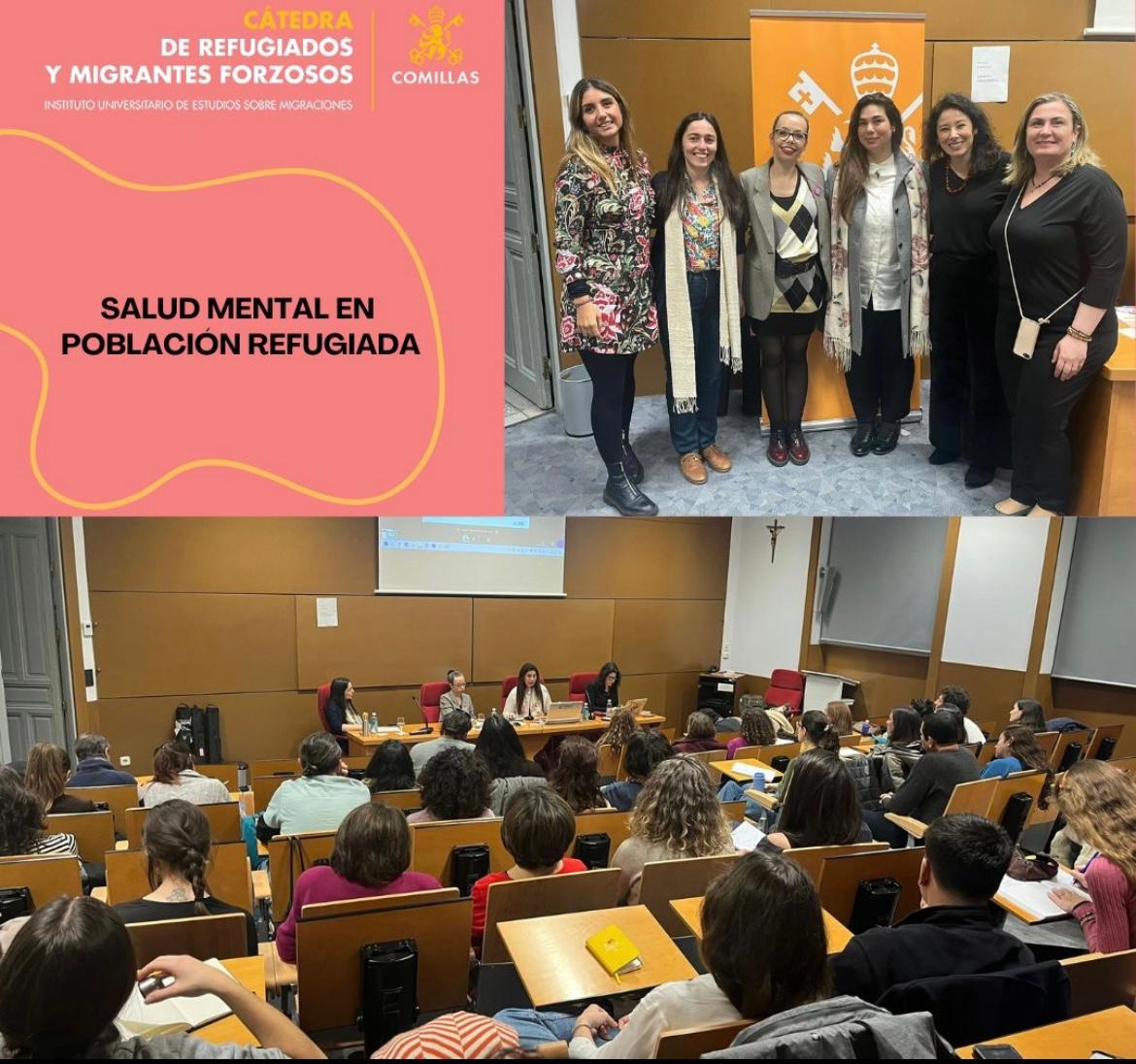Ángela Ordoñez, researcher at Comillas CIHS, finalist in the American Psychological Association's Social Issues Dissertation Award
Her thesis investigates the process of forgiveness in refugees.

11 January 2024
Ángela Ordoñez, researcher at the University Institute for Migration Studies (IUEM) and lecturer in the Department of Psychology at the Faculty of Humanities and Social Sciences (Comillas CIHS), has been studying for years the role of forgiveness, used as a therapeutic tool, in the refugee population. The result of all that time of research has been a doctoral thesis, which she presented in 2022 and entitled Enhancing forgiveness and well-being in refugees through a community-based participatory research (CBPR) collaboration: " The Society of Jesus proposed forgiveness processes as a priority line. A line of research on reconciliation was opened and the idea was applied to this population," she says. The work has been recognised as a finalist for the Social Issues Dissertation Award of the prestigious American Psychological Association (APA).
The research was carried out in collaboration with the Jesuit Refugee Service (JRS) in Lisbon and the method used, Community-Based Participatory Research, was applied after seeing how it works during a stay at Harvard University: "with this method there is a lot of dialogue with the communities, they are the ones who say what is going to be done and how it is going to be done. The researcher is just another collaborator.
As for the object of study, the lecturer and researcher explains why forgiveness was used in a population such as refugees, who have often gone through exceptionally unjust experiences and situations. Precisely some of the responses to these experiences are the desire for revenge and avoidance. Forgiveness is a third way here. "In any context in which we have been hurt, it is very difficult to forgive, especially when you have not been asked for forgiveness. Forgiving in a unidirectional way is very difficult. But the reality is that, in many cases, when one manages to work through that grief and free oneself, life improves," says Ángela.
Some of the results observed have to do with refugees' need to experience empathy, to feel supported and safe, and with the search for justice. Forgiveness is something that needs time and should not be forced, making it clear that it is a delicate process that needs to be approached with great sensitivity.
You may also be interested in...

"24th Annual Entreculturas Meeting: United to build a just and sustainable future on 4-6 October".

The report with the results of this project, aimed at improving the data culture among agents and organisations that detect and identify human trafficking in Spain, was presented on Wednesday 25 September.

The Refugee Chair organised six sessions over the course of the year, addressing key migration and refugee issues.
